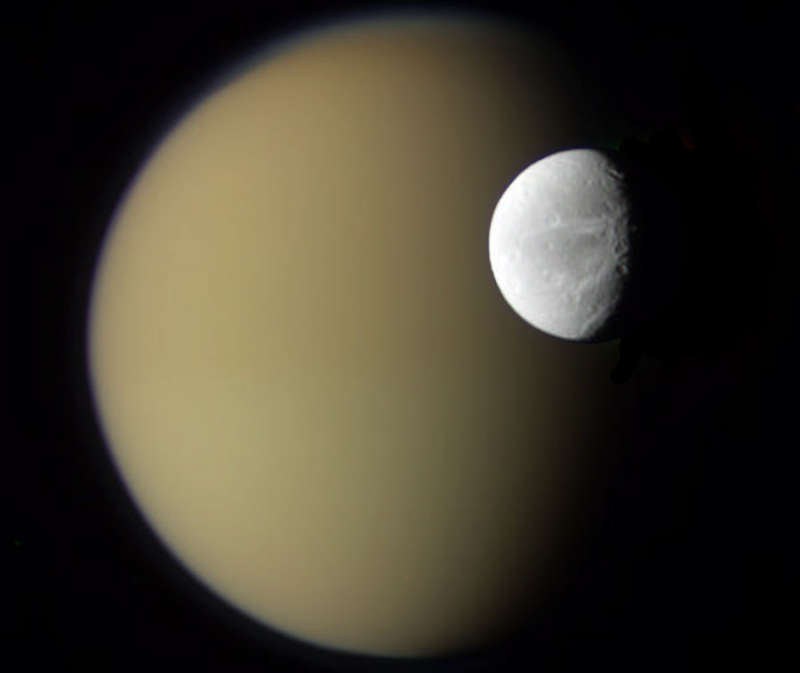Explanation: What would it be like to see a sky with many moons? Such is the sky above Saturn. When appearing close to each other, moons will show a similar phase. A view with two of the more famous moons of Saturn in gibbous phase was captured last month by the robot spacecraft Cassini now orbiting Saturn. Titan, on the left, is among the largest moons in the Solar System and is perpetually shrouded in clouds. In 2005, the Huygens probe landed on Titan and gave humanity its first view of its unusual surface. Dione, on the right, has less than a quarter of Titan's diameter and has no significant atmosphere. The above uncalibrated image was taken on April 10 after Cassini swooped by each moon the previous week.
1999 2000 2001 2002 2003 2004 2005 2006 2007 2008 2009 2010 2011 2012 2013 2014 2015 2016 2017 2018 2019 2020 2021 2022 2023 2024 2025 |
Yanvar' Fevral' Mart Aprel' Mai Iyun' Iyul' Avgust Sentyabr' Oktyabr' Noyabr' Dekabr' |
NASA Web Site Statements, Warnings, and Disclaimers
NASA Official: Jay Norris. Specific rights apply.
A service of: LHEA at NASA / GSFC
& Michigan Tech. U.
|
Publikacii s klyuchevymi slovami:
Saturn - Dione - Titan - Saturn - Diona - Titan
Publikacii so slovami: Saturn - Dione - Titan - Saturn - Diona - Titan | |
Sm. takzhe:
Vse publikacii na tu zhe temu >> | |
